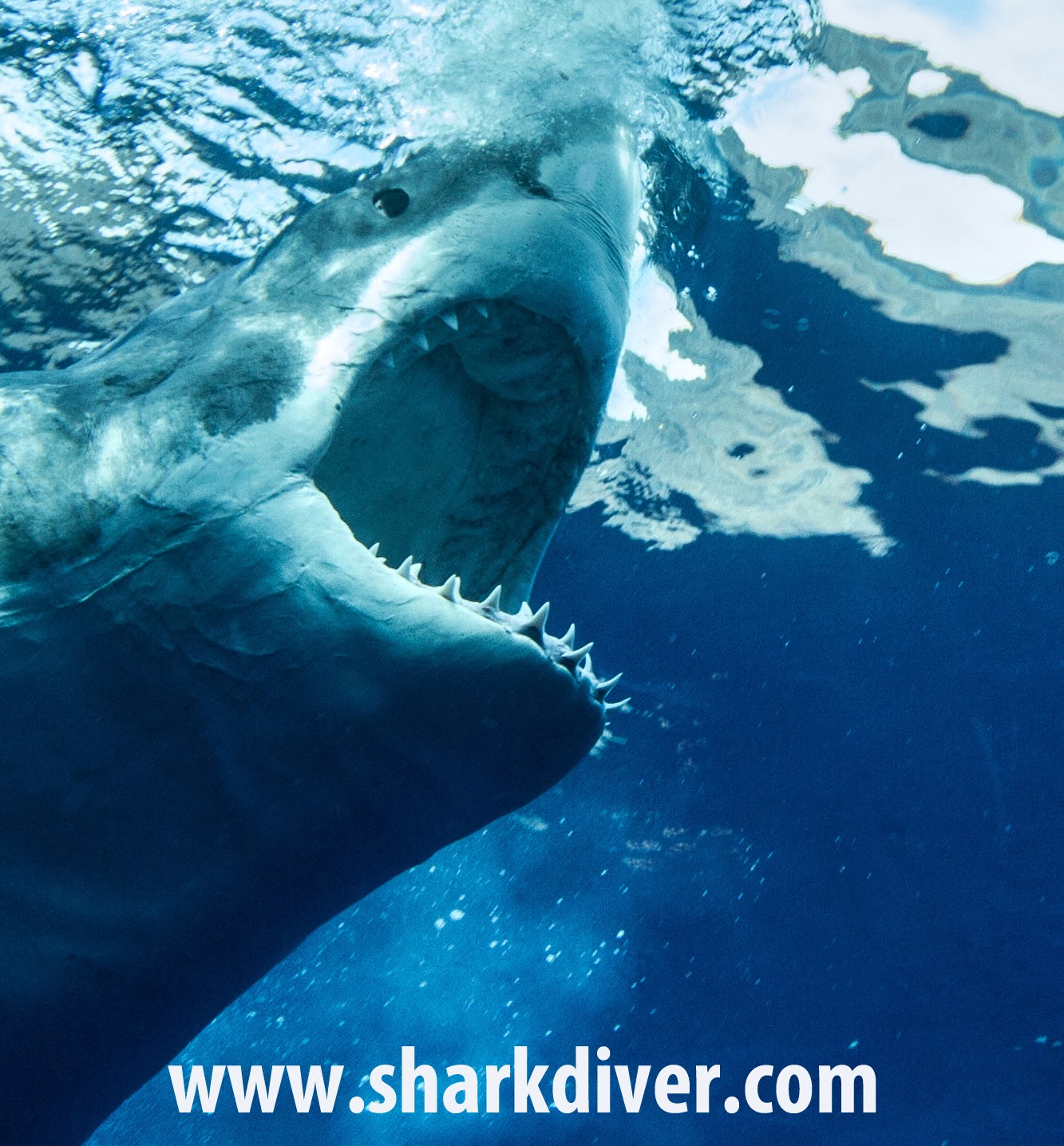We commonly refer to sharks as apex predators. Are they really? If they are not, does it matter? A few Australian researchers have come up with some answers to both questions.
First, are sharks apex predators? According to their findings, the answer is yes …. and no.
 |
| Example of an apex predator! |
Here is what they found. “While size can be important in terrestrial ecosys- tems, size is crucial in marine ecosystems — which tend to be dominated by indeterminate organisms that grow continuously throughout their lives (Trebilco et al. 2013). Individual function changes due to onto- genetic diet shifts as organisms grow in size (Karpouzi
& Stergiou 2003, Pinnegar et al. 2003). The conse- quence is that size-structuring within communities, rather than species identity, is an important factor in determining the strength of competitive and predatory interactions (Dickie et al. 1987, Kerr & Dickie 2001). For example, studies have shown high overlap in diet between similar-sized sharks regardless of maturity state and species identity (e.g. Bethea et al. 2004). Therefore, designation of marine species into apex and mesopredator categories should consider the life stage and size of individuals.”
I’m not a scientist, but what I’m getting is, size matters!
But so, why should we care? We are not scientists, (well, you may be, but I’m not) so what does a classification matter?
Here is what they have to say to that.
 |
| Example of a meso predator! |
“Our size-based view of the classification of predatory roles raises important questions about what objectives to manage, and how these objectives can be best achieved. Protection of reef communities through marine protected areas (MPAs) or fisheries regulation (or indeed, naturally on those few locations far from human population centres) would ensure the mesopredator sharks on these reefs are sheltered from fishing pressure. However, the same may not be true for apex predators because their broad movement patterns and large home ranges (Meyer et al. 2009) would expose them to a greater diversity of fishing fleets and gears, and thus a greater overall mortality than the smaller-ranging, reef-dwelling mesopredators. Hence, the apex pred- ators of coral reefs may be silently eliminated by offshore pelagic longline fisheries, unbeknownst to those managing reef diversity and function (Cox et al. 2002). Therefore, reef-based MPAs are not adequate to protect these species”
So basically they are saying that we need to do more than establish MPAs to adequately protect apex predators.
Here is a graphic that may be a bit more clear on the subject.
This graphic shows, that without MPAs prey species would greatly increase, while both mesopredators and apex predators decrease. With reef scale (small, local) MPAs, the mesopredators thrive, keeping the prey species in balance, but the apex predators still decline.
In practical terms, this means that we have to protect apex predators on a much larger scale than the less migratory mesopredators. In order to do that, we need to know both where they are and when they are there. With that knowledge we can push for local and/or seasonal protection for these migratory apex predators. In order to get that data, we need data that shows the migratory behavior of the various species of apex predators.
Cheers,
Martin Graf
CEO
About Shark Diver. As a global leader in commercial shark diving and conservation initiatives Shark Diver has spent the past decade engaged for sharks around the world. Our blog highlights all aspects of both of these dynamic and shifting worlds. You can reach us directly at staff@sharkdiver.com



